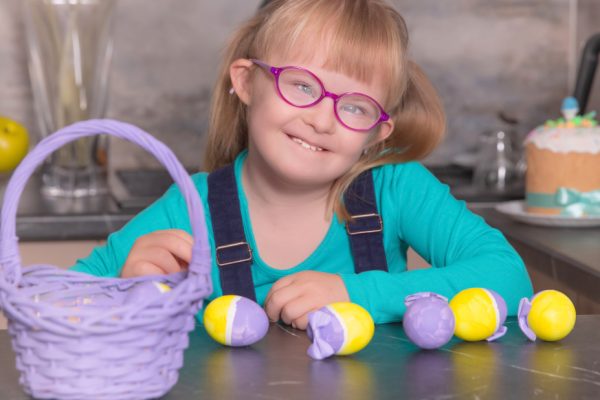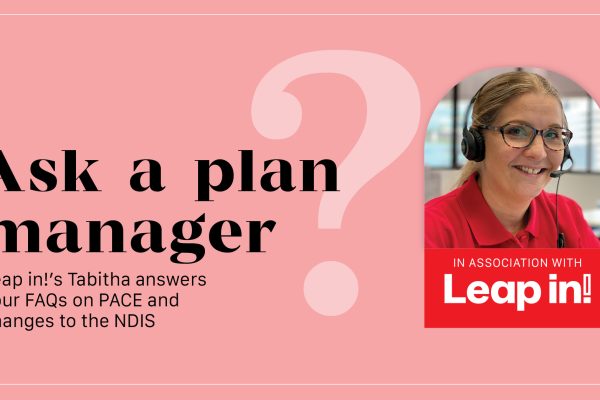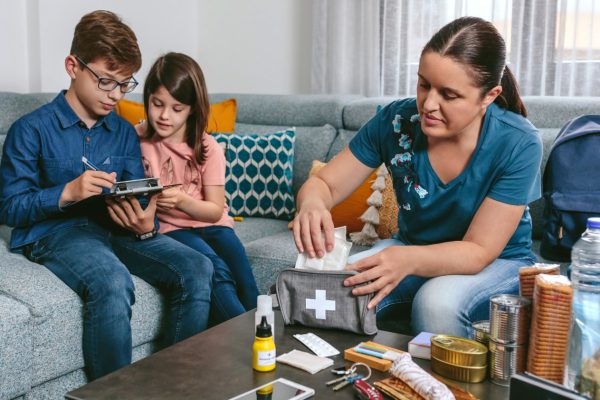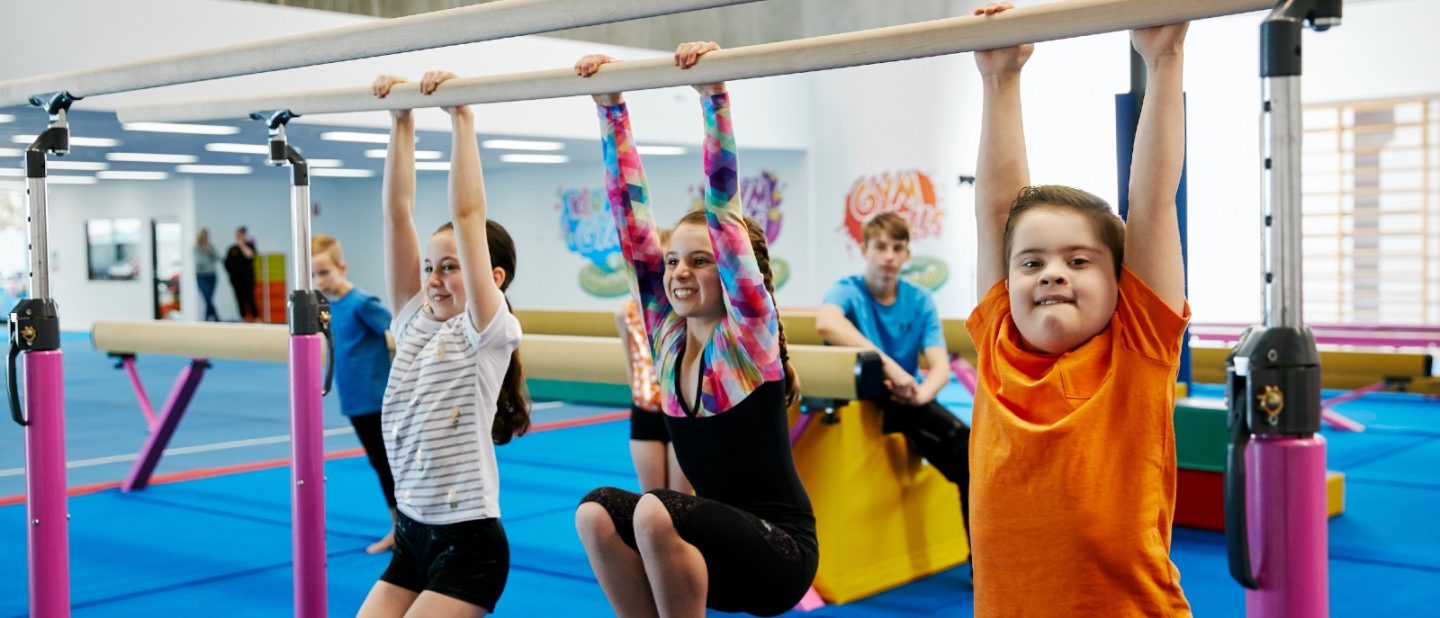
Introducing children with a disability to gymnastics
By Salma Arabi, Inclusion & Diversity Coordinator and Centre Manager – BK’s Gymnastics Craigieburn and Vicki Flamsteed, BK’s Gymnastics QLD CEO.
Gymnastics has now overtaken Australian football to be the third most popular sport for kids under the age of 12 and it’s easy to see why. There are so many physical and mental benefits for kids and for those with a disability, the list of benefits is extensive.
Gymnastics is a sport that provides an enriching environment filled with opportunities for sharpening the mind by stimulating the brain, fostering social skills and strengthening gross and fine motor skills, while providing children with special needs an alternative method for learning and developing new skills.
Gymnastics strengthens the body, of course. But a child who may struggle with learning disabilities, challenges in communicating, low self-esteem and difficulty socialising can benefit in ways that go far beyond the gym walls. They learn to listen, follow instructions, take turns and interact with others and can learn at their own pace, with a great sense of achievement and progress.
With specialist equipment and safe landing surfaces, children can participate in an activity that enhances neural pathways through activities involving left and right brain engagement, cross -patterning and crossing-the-midline activities, sensory development, strength and balance – all these movement patterns are critical for children’s natural physical development and even more so for children with a disability who often require additional therapy for auditory and sensory processing development as well as low muscle tone and other physical milestone delays.
Introducing your child to gymnastics should be done slowly and carefully to allow them to adjust to the new environment and set the scene for a positive experience with the sport.
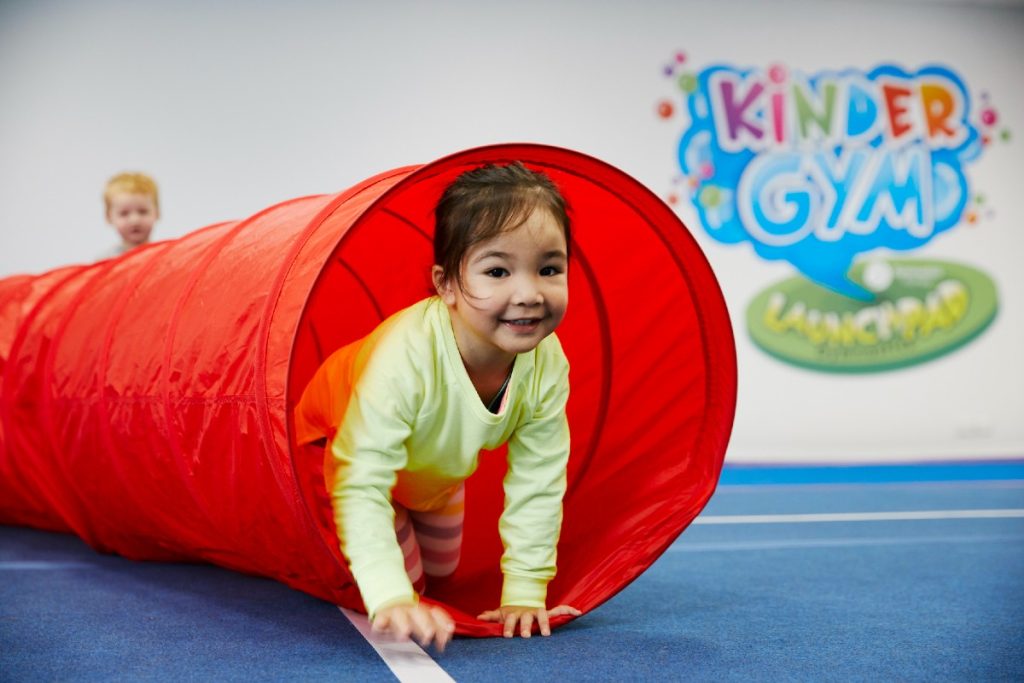
Here are some tips for introducing your child to gymnastics:
- Have a casual catch up with the coach first
It’s so beneficial for a parent/guardian to bring the child in for a very casual meeting with the coach they will be working with. Having that initial contact in a relaxed and quiet setting works well as it allows the child to become acquainted with the coach and the parent is able to assess whether the coach is the right fit for their child’s needs. This is also the perfect time to set goals and understand what the child’s needs are. The more information the enrolment staff and coaching team can have about each child’s ability and needs, the better coaches can adjust the class to provide great outcomes for kids with extra needs.
- Use social storytelling
As many parents with a child with additional needs would already be familiar with, social stories help to explain social situations to children and are particularly beneficial when a child is entering a new environment and meeting new people. These new elements can be introduced through words or pictures to get the child prepared before their session. They can also be created in collaboration with the coach so it is a team effort.
- Share triggers with the coach
Children on the autism spectrum in particular can have a range of trigger points that affect their successful participation in sport. Because gymnastics offers individual progression, the class can be modified to give these children a great sporting experience and strong sense of being part of a team and club. If parents can provide information on trigger points and specific areas their therapists are focusing on, gymnastics can become the ideal place for these children to thrive and achieve. Parents will also feel supported and confident that their child’s individual needs are being catered for in their gymnastics program.
- Don’t feel afraid to involve other experts. Interactions with support workers, occupational therapists, physiotherapists and other specialists should be welcomed by your gymnastics provider, to ensure the children can gain the most value and so a tailored approach can be adopted.
BK’s Gymnastics works closely with Gymnastics Australia, which provides invaluable resources for the team to use when working with children with special needs such as Autism and ASD. Many coaches have completed courses through the Gymnastics Australia Special Olympics program as well. BK’s Gymnastics offers classes suitable for kids from 3 months old to over 8 years (parent assisted for children 3 years and younger) at locations in Sydney, Melbourne and Brisbane. They aim to empower kids to live their best lives by helping them master vital movement skills like balancing, jumping, climbing, rolling, leaping and swinging while also building social skills, resilience, listening skills, problem solving abilities, decision making skills and preparing kids to take controlled risks. For more information please visit: https://www.bkgymswim.com.au


